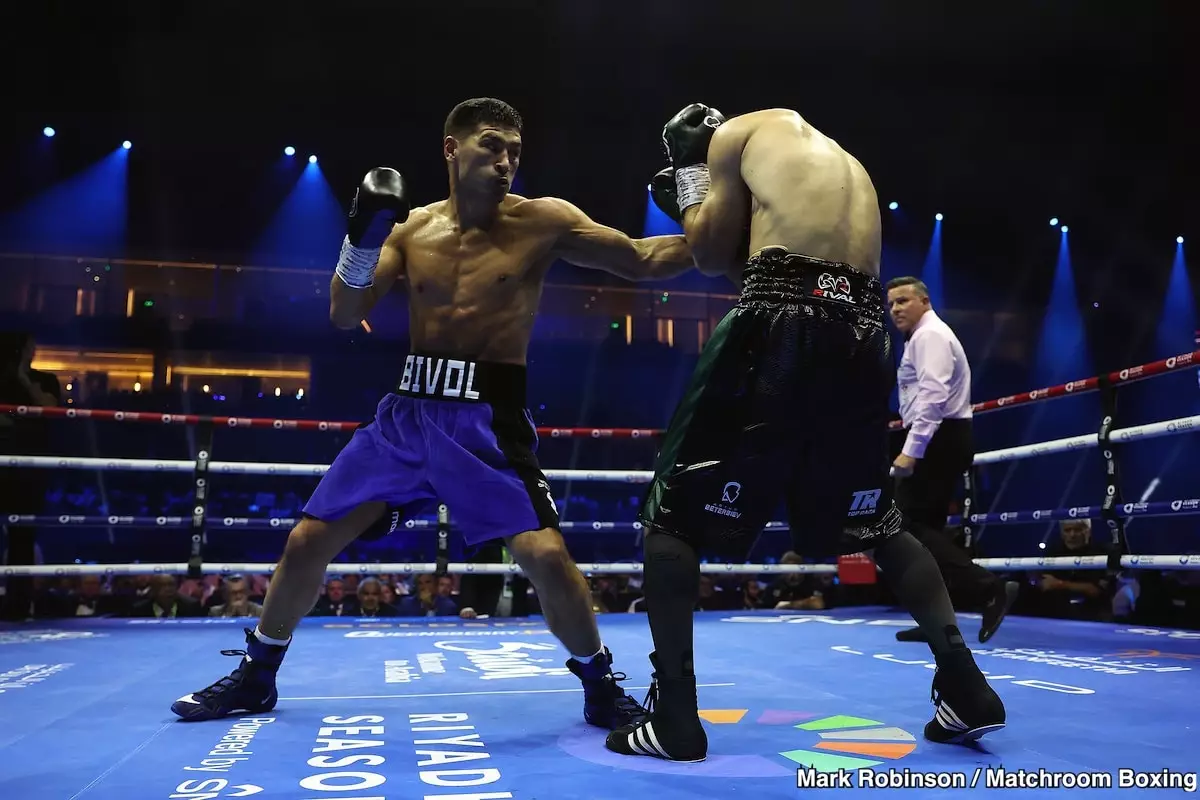The boxing world is buzzing in anticipation of the upcoming rematch between Dmitry Bivol and Artur Beterbiev, scheduled for February 22nd in Riyadh. At the heart of the spectacle lies not only the titles at stake but also the fighters’ legacies. With Bivol’s previous competitive bout against Beterbiev, which was a close call that left fans debating the outcome, the pressure is on for both fighters to step into the ring with a clear strategy. Former WBA light heavyweight champion Bivol, now with a record of 23 wins (12 KOs) and 1 loss, carries the burden of expectation, particularly after being labeled by Shakur Stevenson as the rightful winner of their last encounter.
Shakur Stevenson, the current WBC lightweight champion, has been vocal about his belief that Bivol should have emerged victorious in the first fight. His analysis highlights the crucial mistakes made by Bivol during the latter rounds, a sentiment echoed by many boxing analysts. Stevenson argues that Bivol let his momentum slip during the final rounds, allowing Beterbiev – who has an unblemished record of 21-0 with 20 KOs – to seize control when it mattered most. This verbatim critique from a contemporaneous champion sheds light on Bivol’s tactical shortcomings while also emphasizing the importance of maintaining engagement throughout the fight.
For Bivol to turn the tide in the upcoming rematch, he must adopt a relentless approach. Stevenson suggests that to secure victory this time, Bivol should maintain high energy levels and aggressive strategies, particularly in the championship rounds. His previous retreating behavior, attributed in part to being hurt during the seventh round, proved detrimental. There is a consensus that Bivol must balance his natural defensive style with offensive determination. Should he manage to exert pressure rather than play the elusive game, it’s conceivable he could sway the judges’ opinions and leave no room for ambiguity in the scorecards.
Bivol’s ability to stay focused during the entire fight will be a fundamental aspect of his strategy. Stevenson’s comments stress the need for mental readiness and sustained concentration — factors that can greatly influence the fight’s outcome. Bivol’s tendency to exhibit a more passive fighting style in critical moments needs to be recalibrated; he must remain engaged and assertive, countering each of Beterbiev’s calculated advances with his own tactical countermeasures. With both fighters exhibiting a penchant for movement and calculated holds, it will be essential for Bivol to employ strategies that play to his strengths while counteracting Beterbiev’s aggression.
As the rematch looms closer, the boxing community will keenly follow both fighters’ preparation methods. Bivol, taking into account the valuable lessons gleaned from their previous matchup, must channel a strategy tailored to counteract Beterbiev’s natural aggression. With Stevenson also participating on the undercard, there lies an opportunity for both fighters to solidify their reputations. February 22nd is poised to be a critical juncture in Bivol’s career, one that could either reinforce his position in boxing or shake the very foundation of his aspirations. The fight promises to be a thrilling contest, raising questions of skill, strategy, and heart in the squared circle.

